In recent years, the transportation of dangerous goods has developed strongly, and transportation enterprises have gradually created prestige for partners who need to transport dangerous goods. Transporting dangerous goods is a potentially risky business. Therefore, the transportation of this item always receives great attention from competent and functional agencies.
A unit specializing in Logistics shared that it is time for Logistics units to pay more attention to understanding the hazards of chemicals, identifying these hazards through their documents, packaging, labels and most of all, knowing the safety principles in preserving and storing chemicals from production, transportation to consumption and even disposal.
Some transport experts acknowledge that in the past, many transport units have not strictly complied with regulations on transporting dangerous goods, such as road traffic regulations. This includes non-compliance with special regulations, such as the regulation on not directly transporting dangerous goods such as gasoline through tunnels over 100m and ferries at the same time as passengers.
On the other hand, many transport vehicles are not fully equipped with safety equipment suitable for the type of dangerous goods, and infrastructure such as tunnels and yards may not meet strict regulations. The lack of specialized vehicles, incident handling systems or appropriate safety measures can increase the risk.
Or not all people involved in the transportation of dangerous goods are fully trained, including understanding the current regulations and how to handle emergency situations. This leads to unwanted errors and potential risks of accidents.
Faced with the above shortcomings, Decree No. 34/2024/ND-CP of the Government regulating the List of dangerous goods, transporting dangerous goods by road motor vehicles and inland waterway vehicles was issued, and at the same time, provided many regulations to overcome them.
Specifically, the Decree applies to Vietnamese and foreign organizations and individuals involved in the transportation of dangerous goods by road motor vehicles and on inland waterways in the territory of the Socialist Republic of Vietnam in the following cases: Goods serving urgent requirements for disease prevention and control, natural disasters, and enemy attacks; transit goods of countries and international organizations that have not signed international treaties related to Vietnam.
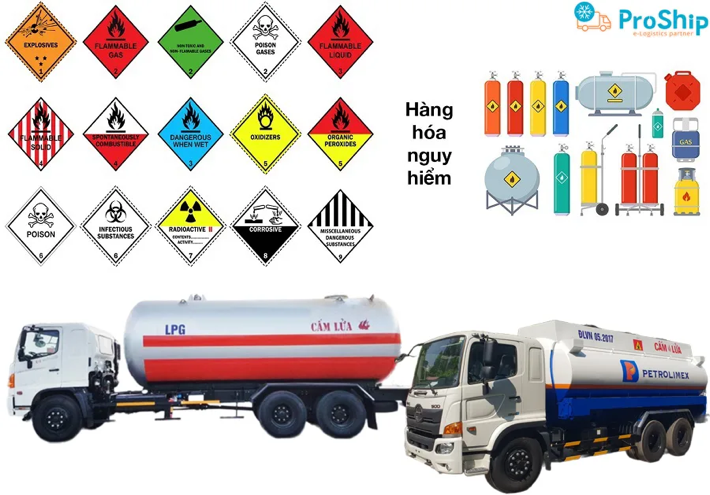
The Decree stipulates that drivers of vehicles transporting dangerous goods must ensure that they have sufficient conditions to operate the vehicle and are trained and granted a certificate of completion of the dangerous goods safety training program as prescribed. Escorts, warehouse keepers, and people loading and unloading dangerous goods must be trained in safety and granted a certificate of completion of the safety training program for the type of dangerous goods they escort, load, unload, or store.
Vehicles must be qualified to participate in traffic and specialized equipment must ensure national standards, national technical regulations or regulations of the specialized management ministry. Vehicles transporting dangerous goods must have dangerous goods symbols posted in easily observable locations. After unloading all dangerous goods, the vehicle must be cleaned and the dangerous symbols must be peeled off or erased.
Regarding the loading and unloading of dangerous goods, relevant organizations and individuals must strictly comply with the instructions on storage, loading, unloading and transportation of each type of goods. The loading and unloading must be directly guided and supervised by the warehouse keeper, the transport hirer or the escort. Do not load together types of goods that may affect each other.
For dangerous goods, groups must be loaded, unloaded and stored in separate places. When transporting dangerous goods such as flammable and explosive substances through tunnels and ferries, explosives, gas, gasoline, oil and flammable and explosive substances must not be transported on the same vehicle with people (traffic participants or passengers).
The Decree also stipulates 5 cases exempted from granting a License for transporting dangerous goods: transporting dangerous goods such as liquefied natural gas (LNG) and compressed natural gas (CNG) with a total mass of less than 1,080 kg; transporting dangerous goods such as liquefied petroleum gas (LPG) with a total mass of less than 2,250 kg; transporting dangerous goods such as liquid fuel with a total capacity of less than 1,500 liters; transporting dangerous goods such as plant protection chemicals with a total mass of less than 1,000 kg; transporting dangerous goods such as the remaining dangerous toxic chemicals in the types and groups of dangerous goods.
The Decree also stipulates four cases of revocation of the Dangerous Goods Transport License: providing a copy that is not consistent with the original or providing false information in the application for a Dangerous Goods Transport License; transporting dangerous goods inconsistent with the application for a license or inconsistent with the issued Dangerous Goods Transport License; ceasing operations in accordance with the provisions of law; employing people to participate in transporting dangerous goods without being trained in dangerous goods safety as prescribed.
At the same time, the Decree clearly stipulates the responsibilities of the People's Committees of provinces and centrally-run cities in the management, inspection, examination and handling of violations in the transportation of dangerous goods and dangerous goods safety training activities.
Source: https://cand.com.vn/Giao-thong/van-chuyen-hang-hoa-nguy-hiem-nguoi-dan-can-luu-y-dieu-gi--i787459/

























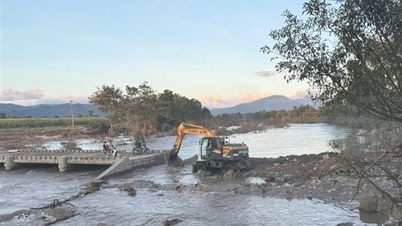
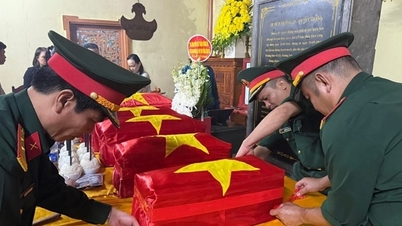

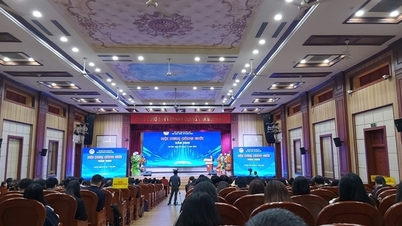
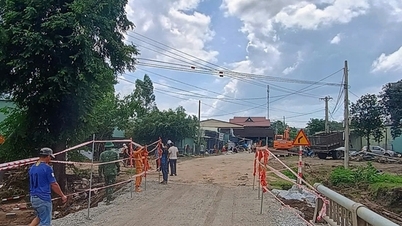






























































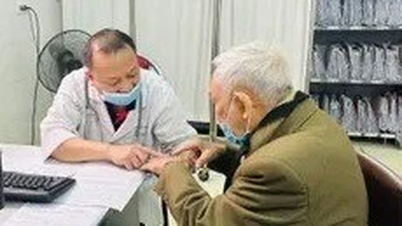


![Dong Nai OCOP transition: [Part 2] Opening new distribution channel](https://vphoto.vietnam.vn/thumb/402x226/vietnam/resource/IMAGE/2025/11/09/1762655780766_4613-anh-1_20240803100041-nongnghiep-154608.jpeg)












Comment (0)